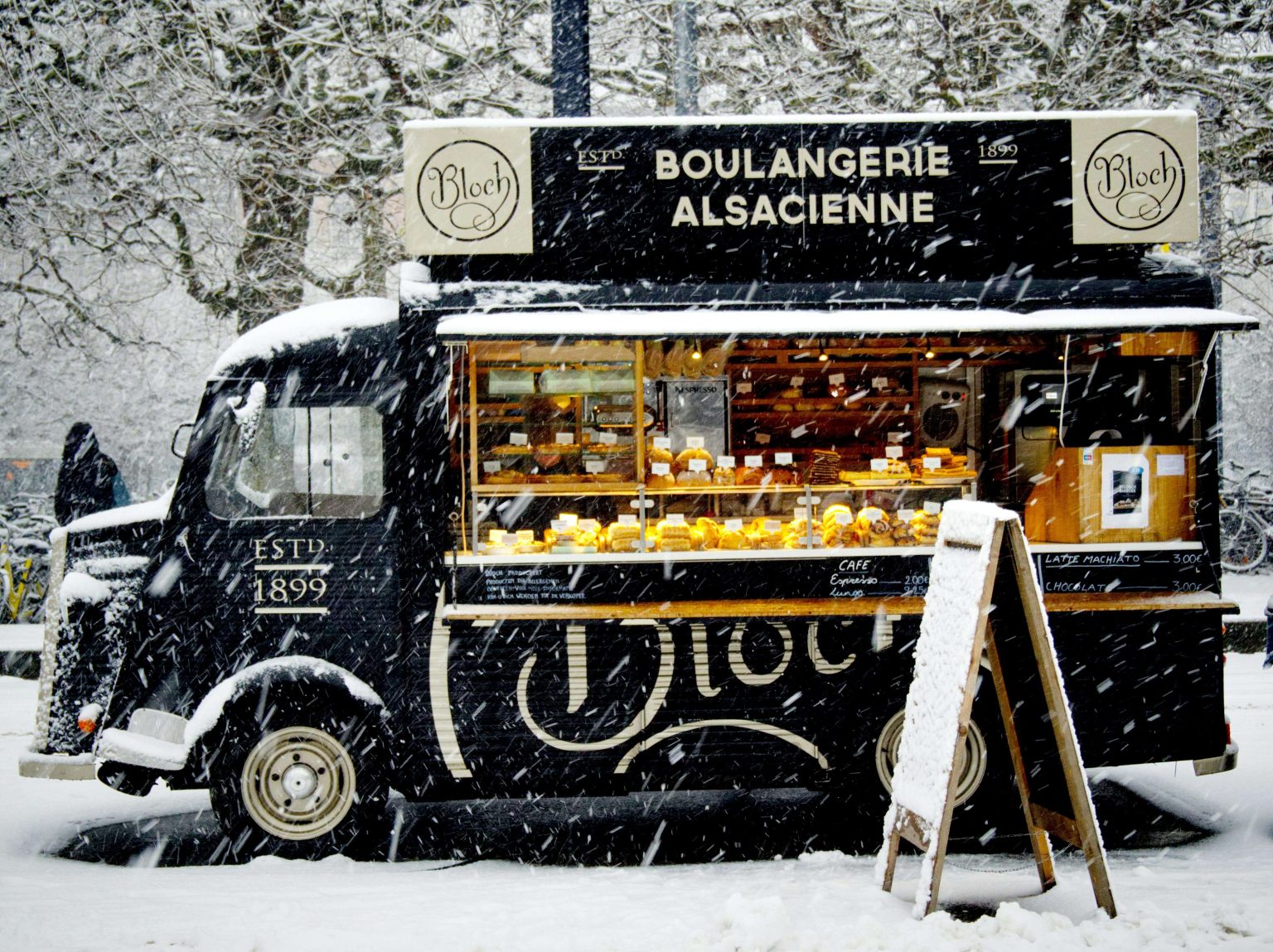Starting a food truck business is a thrilling way to combine your passion for food with the flexibility of mobility. But before starting, it is essential to know how much it costs to start a food truck. Learn how much you should save, from buying the car to getting permits and stocking your inventory. While running a food truck can be a dream, doing it right takes planning, budgeting, and preparation.
1. Choose your Food Truck
The major cost of any food truck business is buying the truck. It’s upon you whether you buy a new food truck or buy a used food truck or a custom-built food truck. There is another option other than buying you can also take a food truck on rent.
Buy a new food truck.
A new food truck typically costs between $80,000 and $150,000. These trucks have kitchen appliances and all necessary equipment, ensuring good quality and reliability.
Buy a used food truck:
A used food truck typically costs between $40,000 and $80,000. If you are on a tight budget this is the best option because it is less expensive.
Custom-built food truck
Customized food trucks for sale are available for customers who want a truck personalized according to their demands. They are priced between $100,000 and $200,000.
Rented food truck:
Renting a food truck is an option for those who want to start with lower initiative costs. Rental costs range from $2000 to $5000 per month, depending on the condition and features included.

2. Must have Equipment for your Food Truck
Once you have secured your food truck, it is time to outfit the vehicle with the necessary tools and equipment for serving and preparing your menu. The equipment varies depending on the type of food to be served. However, here is a general list of essentials.
Cooking Equipment:
Grills, fryers, ovens, stovetops, and microwaves.
Refrigeration Unit:
- Commercial refrigerators
- freezers for food storage.
Food Preparation Stations:
Counters, cutting boards, sinks, and shelving for prep and storage.
Small Appliances and Utensils:
Blenders, mixers, knives, cutting boards, and serving utensils.
Serving and Packaging Supplies:
Disposable plates, utensils, napkins, and packaging.
The total cost of the equipment can range between $10,000 and $30,000 depending on the requirement and quality of your menu.
3. Securing Licenses and Permits

There are licenses and permits before sending your food truck into the street and permits will help you run the car legally. These requirements will be different depending on your locality, so you should put in some effort to make sure that you check local regulations. Here’s what you’ll typically need:
- Business License
- Food Handlers permit
- Health Department Permit
- Parking Permits
- Fire Safety Clearance
The total cost of licenses and permits can range from $500 to $5,000, depending on your location and the specific requirements.
Be sure to keep all documents up to date and readily accessible, as inspections and renewals are often part of compliance. Understanding these legalities upfront can save you from costly fines or delays later.
4: Budget for Ingredients
The elements determine whether the menu succeeds or doesn’t, so the exact quality and quantity of the ingredients have to be maintained. For example, if produce, meats, spices, or any other raw material parts are continuously supplied daily, you could expect, at least, to spend an average of around $1,000 or so from weekly expenses on ingredients of your business. Adjust that according to your menu offerings and the expected turnout of customers.
5: Fuel Costs
This applies to the fuel for the vehicle transporting your food truck and cooking equipment running on gas, such as grills and fryers. The fuel generally consists of gasoline for the truck and propane for the appliances.
Monthly fuel costs usually run around $600, but this number varies depending on travel miles and operational hours.
6: Include supplies
Every order is normally packaged and served with some items. Take-out containers, utensils, napkins, and even straws might not cost a lot individually, but the total price of these materials adds up. Consider this cost as a regular expenditure in your budget for smooth service delivery.
7: Staffing
Running a food truck requires a small team to help with cooking, running, and managing operations. Whether you hire a part-time or full-time employee depends on you and your business, but staffing costs are a significant part of your monthly expenses.
Depending on your location and labor laws, hourly wages for food truck staff may range from $10 to $20 per hour.
It may also mean incurring some minor costs in terms of initial training for newcomers to understand your operations.
The total staffing costs will depend on your team size and operating hours, but it’s a key area to budget for when planning your expenses.
8:Prepare for Maintenance
Routine maintenance for your food truck isn’t covered by insurance, so you’ll need to handle these costs on your own. Regular upkeep ensures your truck runs efficiently and avoids unexpected breakdowns. Neglecting it can lead to costly disruptions in your operations.
Maintenance tasks range from simple to complex. Oil changes and tire rotations are affordable essentials while repairing equipment like grills or refrigerators can be much more expensive. Planning for these costs is key to staying prepared.
Setting aside a maintenance budget is a smart move. Regular inspections help keep your truck in top shape and prevent bigger expenses. A well-maintained truck ensures smooth operations and satisfied customers.
9: Marketing
Marketing your food truck is what brings people to it and builds your brand. Social media is an excellent way to showcase your menu, daily locations, and special offers. While increasing exposure, using social media is timely in building relationships with your audience online that mature into loyal customers.
Connect with other local businesses and events in the community to increase visibility. A well-designed, eye-catching truck will attract and draw in some new customers.
| Steps | Cost Category | Estimated Costs |
| 1. Choose Your Food Truck | Purchase or Lease a Food Truck | $20,000 to $100,000 |
| 2. Must have Equipment | Kitchen Equipmentents | $10,000 to $30,000 |
| 3. Securing Licences and Permits | License Fee | $500 to $5000 |
| 4. Budget for Ingredients | Overall Budgeting | $1000 to $2000 |
| 5. Fuel Costs | Gasoline and Propane | $600 per month |
| 6. Include Supplies | Cost Tracking and Files | $50 to $200 per month |
| 7. Staffing | Staffing Expenses | $2000 to $6000 per month |
| 8. Prepare for maintenance | Routine and Emergency maintenance | $100 to $500 per month |
| 9. Marketing | Advertising and Promotion | $300 to $1000 per month |

Conclusion:
Starting a food truck requires planning and budgeting to manage setup and operational costs. Each step is vital to ensure smooth and efficient operations.
With smart financial management and dedication, you can build a thriving business. Prepare well, and your food truck can become a customer favorite.

